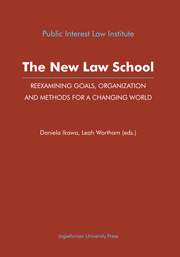Book contents
- Frontmatter
- Contents
- Preface
- Acknowledgments
- Introduction
- Part One Goals of Legal Education
- Part Two Law School Governance
- Part Three Optimal Academic Curricula and Teaching Methods
- Part Four The Academic Career in Law
- Chapter 7 The Challenges of the Mass University and the Civil Law Country Model of Legal Education: How Open Is the Polish University Model to Innovative Teaching and Nurturing of Clinical Programs?
- Chapter 8 Croatian Legal Education Reform at the Crossroads: Preparing the Modern Lawyer
- Chapter 9 The Need for a New Law Professor in Moldova
- Chapter 10 Some Aspects of Academic Legal Careers in Georgia
- Appendix
Chapter 9 - The Need for a New Law Professor in Moldova
from Part Four - The Academic Career in Law
Published online by Cambridge University Press: 05 September 2014
- Frontmatter
- Contents
- Preface
- Acknowledgments
- Introduction
- Part One Goals of Legal Education
- Part Two Law School Governance
- Part Three Optimal Academic Curricula and Teaching Methods
- Part Four The Academic Career in Law
- Chapter 7 The Challenges of the Mass University and the Civil Law Country Model of Legal Education: How Open Is the Polish University Model to Innovative Teaching and Nurturing of Clinical Programs?
- Chapter 8 Croatian Legal Education Reform at the Crossroads: Preparing the Modern Lawyer
- Chapter 9 The Need for a New Law Professor in Moldova
- Chapter 10 Some Aspects of Academic Legal Careers in Georgia
- Appendix
Summary
“The main hope of a nation lies in the proper education of its youth.”
ErasmusIntroduction
This chapter proposes developing a new law professor as the key factor in reforming the law schools, given the changed legal environment and needs in Moldova. The new law professor should help law students gain knowledge, but also help them develop critical thinking and the ability to apply the law. While this is a more or less acknowledged need, how to foster the construction of such a position remains a major challenge. We suggest some possibilities in this respect: a change in policymakers’ attitudes to legal education; a change for the law professors themselves; continuing training of the entire teaching staff, not only junior members; a policy change in law professors’ remuneration; introduction of a well-conceived evaluation of the staff; and connection of the university with the law practice.
The need for a new law professor
Before the 1990s, legal education was primarily focused on building knowledge of substantive law among students. It paid little or no attention to the skills and attitudes of lawyers. One of the main reasons was perhaps market demand, which was determined by a legal system based on a very strict approach to interpretation of the law. In a system where judges had little discretion in interpreting the law and where precedent had no value, there was less need for skillful lawyers than for lawyers who knew the letter of the law very well.
- Type
- Chapter
- Information
- The New Law SchoolReexamining Goals, Organization and Methods for a Changing World, pp. 93 - 102Publisher: Jagiellonian University PressPrint publication year: 2010

